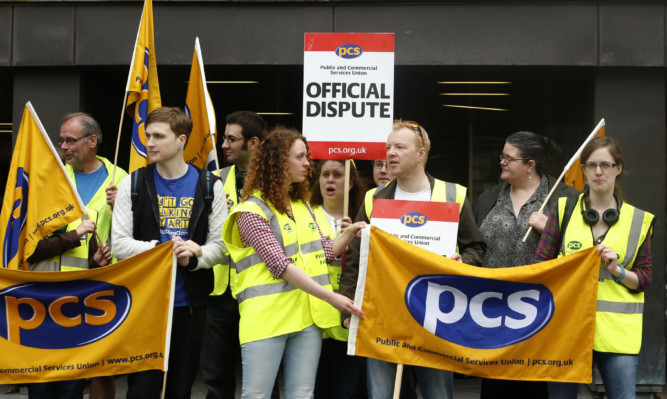The number of days lost to industrial disputes in Scotland is lower than anywhere else in the UK, according to the Scottish Government.
Days lost to industrial disputes have decreased by 84% since the SNP came to power but this could be undermined by the Conservatives’ Trade Union Bill which “will make it considerably more difficult for employees to have their voice heard”, Fair Work Secretary Roseanna Cunningham said.
“Scotland is historically viewed as the birthplace of workers’ rights and we continue to have a strong track record with industrial relations,” she said.
“Since the start of this administration, in the period from 2007 to 2014, industrial disputes in Scotland have decreased by 84% and they have remained steady over the last few years.
“The Scottish trend in days lost to industrial disputes is the lowest of all of the UK nations.
“The proposals set out in the Trade Union Bill are utterly regressive and could completely undermine the positive partnership working the Scottish Government has built up with our unions over a number of years.
“In short, the Bill is an attack on workers. It will make it considerably more difficult for employees to have their voice heard. We will continue to vigorously oppose this legislation.
“We see trade unions as partners, not opponents.
“In publishing our response to last year’s Working Together review, we highlighted the importance of having strong trade unions as key social partners.
“Indeed, they are essential partners in the Scottish Government’s development of more equal, fairer and productive work places.
“In contrast to the UK Government approach, we have established a Fair Work Convention which brings together trade unions, public and private sector employers and the third sector to define fair working practices in a Framework for Scotland.
“The Trade Union Bill runs totally counter to that and the UK Government might find it more productive to copy the Scottish Government’s example if they genuinely wish to see an improvement to industrial relations.”
